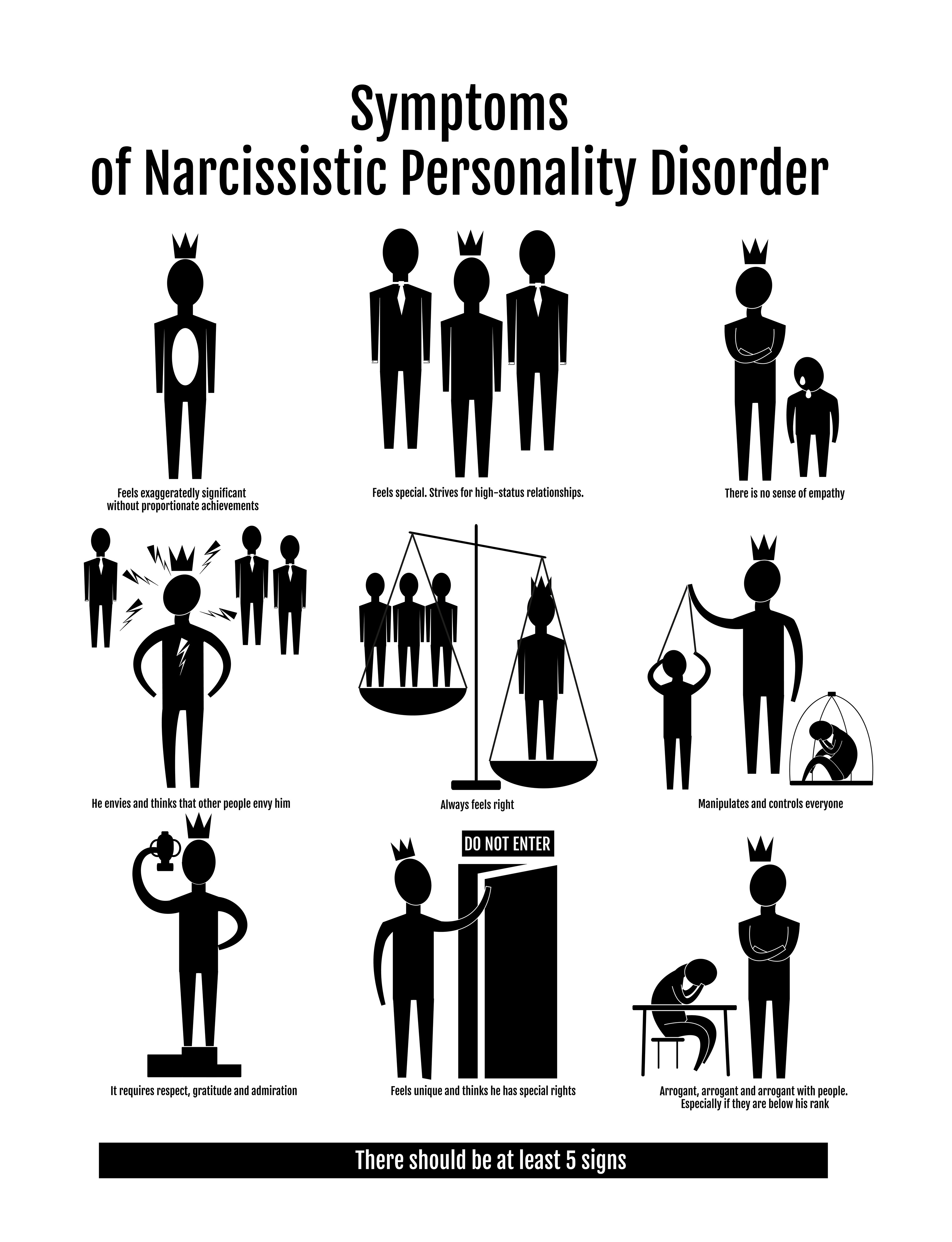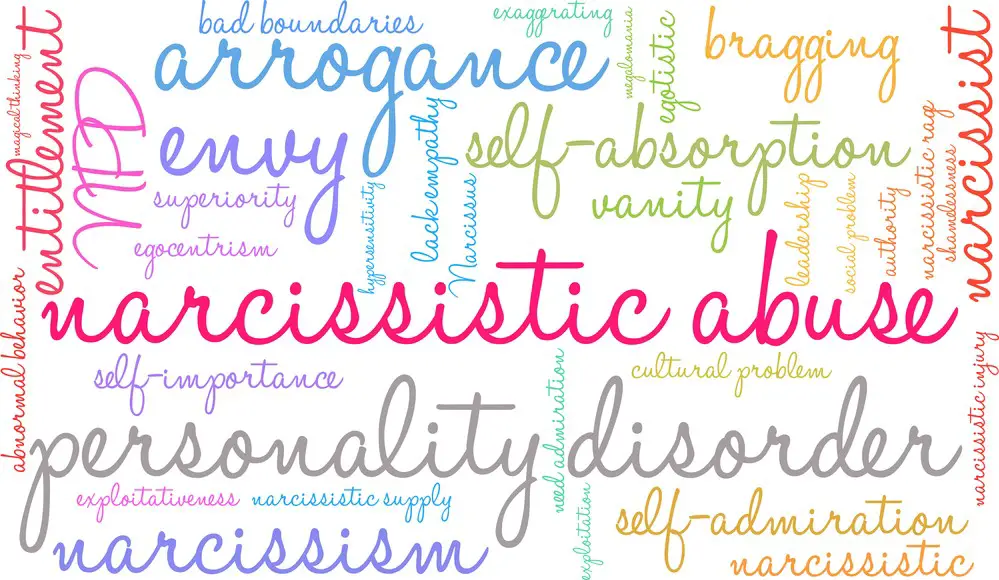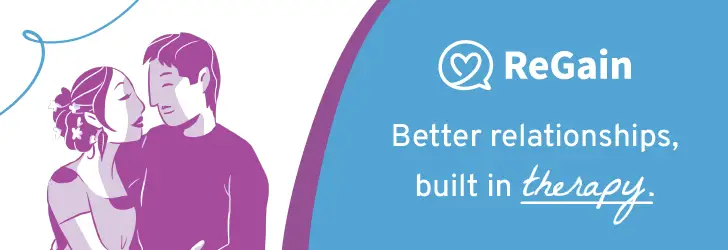As a BetterHelp affiliate, we receive compensation from BetterHelp if you purchase products or services through the links provided
Entering a new romantic relationship is an exciting and hopeful experience, yet dating someone a narcissist has previously abused can sometimes bring challenges. This article aims to shed light on the complex psychological effects of narcissistic abuse and how it can shape a person’s views on love, trust, and intimacy. One can navigate these relationships with empathy, patience, and resilience by understanding the underlying issues.
Narcissistic abuse is a form of emotional manipulation and control that can leave lasting scars on a person’s mental health, leading them to struggle with trust, self-esteem, and the ability to engage in healthy romantic relationships. People who have survived narcissistic abuse often carry deep emotional wounds, making it essential for potential partners to be aware of the unique needs of these individuals. This article will cover the healing and recovery process, identifying triggers, setting boundaries, and tips for building a strong, loving relationship with someone who has experienced this form of abuse.
Key Takeaways
- Narcissistic abuse can deeply impact a person’s relationship with themselves and others.
- Support and understanding is vital for those recovering from narcissistic abuse in new relationships.
- Implementing healthy boundaries and managing triggers will help build a stable and loving partnership.
 Understanding Narcissistic Abuse
Understanding Narcissistic Abuse
Narcissistic abuse is a form of emotional and psychological manipulation perpetrated by individuals with Narcissistic Personality Disorder (NPD). These abusers often use controlling behavior, lies, and emotional manipulation to exert power over their victims.
One common tactic employed by narcissistic abusers is manipulation. This may involve gaslighting, a form of psychological abuse wherein the abuser denies or distorts the victim’s reality. The aim is to make the victim doubt their perceptions or beliefs, ultimately undermining their self-esteem and confidence.
In addition to manipulation, narcissistic abusers may engage in love-bombing. This involves showering a new romantic partner with affection, gifts, and attention to gain their trust and devotion. This behavior typically occurs at the beginning of the relationship, creating an illusion of a perfect partner. However, once the victim is emotionally invested, the abuser may shift gears and begin to show their true colors.
Narcissistic abusers may also hoover, trying to suck their victim back into the relationship by making false promises, apologizing for their abusive behavior, or using guilt and threats. This creates a cycle of abuse in which the victim repeatedly returns to the toxic relationship, believing things will change for the better.
Physical abuse can also be part of narcissistic relationships, though emotional and psychological manipulation often overshadows it. Controlling and dominating physical aggression can leave the victim powerless and unworthy, further perpetuating the belief that they depend on their abuser.
Understanding narcissistic abuse enables individuals to identify the signs and break free from their abuser’s grasp. While recognizing and disentangling from a narcissistic relationship may be challenging, the victim must prioritize their mental and emotional well-being. With support from loved ones and therapy, healing from the negative impacts of narcissistic abuse is possible.
 The Effect on Victims
The Effect on Victims
Victims of narcissistic abuse often experience a wide range of emotional, psychological, and physical symptoms that can greatly impact their lives. One of the most apparent effects of being subjected to abuse by a narcissist is trauma. This type of trauma can manifest in different ways, such as anxiety, depression, and post-traumatic stress disorder (PTSD).
Many victims of narcissistic abuse also struggle with low self-esteem and feelings of worthlessness. They may constantly doubt their self-worth and require reassurance from others. This usually stems from the abuser’s manipulation techniques, such as gaslighting, designed to make the victim question their reality and feel dependent on the abuser for validation.
Another effect on victims is the development of triggers. These triggers might include certain words, actions, or environments that remind the abused of their past experiences. Triggers can lead to physical symptoms, such as headaches, irritability, and panic attacks. Additionally, victims might experience flashbacks and nightmares related to the abuse, further exacerbating their anxiety and fear.
Victims of narcissistic abuse may have an increased likelihood of developing post-traumatic stress disorder (PTSD). PTSD is characterized by intrusive thoughts, hypervigilance, and emotional numbness that persist long after the abuse has ended. This disorder can make it difficult for victims to trust others and form healthy relationships, as they remain constantly aware of potential danger.
As a result of the abuse, some victims may develop separation anxiety and fear of abandonment. This can occur when the abused individual has difficulty establishing or maintaining relationships, leading to clinginess and an overwhelming need for reassurance from their partner.
In some cases, victims of narcissistic abuse might engage in self-harm to cope with their feelings of shame, depression, and low self-esteem. They may harm themselves to exert control over their pain when they feel powerless in other aspects of their lives.
Overall, the effects of narcissistic abuse on victims are wide-ranging and may vary depending on the age at which the abuse occurred and the severity of the abuse. Healing from this type of abuse requires time, support, and professional guidance to help rebuild one’s sense of self-worth and overcome traumatic experiences.
Patterns of Narcissistic Relationships
Narcissistic relationships often display a predictable pattern of behavior. These patterns include power dynamics, boundary violations, and emotional manipulation tactics that can lead to a toxic and abusive relationship.
In the early stages of a relationship with a narcissist, the abuser may engage in love-bombing, showering their partner with praise and affection to create a strong bond. However, as time passes, the narcissist will begin to exert power over their partner by crossing emotional and physical boundaries. This often involves isolation from friends or family, reliance on the abuser for validation, and fear of the consequences of not complying with their demands.
An abusive relationship with a narcissist can create a cycle of abuse, where the abuser’s actions continually inflict emotional pain and become a source of false comfort. The victim may be subjected to silent treatment, distancing themselves from their support network, and ultimately experiencing further manipulation.
Narcissists might also maintain control through a smear campaign, undermining their partner’s reputation by spreading false information. This tactic legitimizes the narcissist’s claims and actions, contributing to the desperation and confusion of their partner.
Trust is often compromised in a relationship with a narcissist due to constant manipulation, deception, and a lack of genuine emotional connection. As a result, the victim typically struggles with self-confidence and self-worth, making it difficult to assert their own needs or establish healthy boundaries.
Recognizing the patterns in a narcissistic relationship can help identify the signs of abuse early on and ultimately lead to healthier, more supportive connections. Knowledge and understanding of these patterns can create a foundation for navigating toxic relationships and breaking the cycle of abuse.
 Healing and Recovery Process
Healing and Recovery Process
Healing from the abuse experienced in a past relationship with a narcissist can be challenging. Therapy is often a crucial step in the recovery journey, as it allows the individual to work through their trauma with the help of a mental health professional. Being patient during this time is important, as healing can take time and vary for each person.
Creating a safe environment for the person in recovery is crucial. This can involve surrounding themselves with supportive people, setting boundaries, and practicing self-care. A healthy relationship should be nurturing and secure, allowing people to share their feelings and concerns without judgment.
One approach to healing is to detach from the narcissist and focus on moving forward. This can involve no contact with the abuser or, at the very least, minimizing contact. Detaching from the narcissist helps break the manipulation cycle and allows personal growth.
Working with a mental health professional can greatly benefit the individual’s recovery. They can help identify any underlying mental health conditions contributing to the person’s difficulty in healing from their past experiences. A mental health professional can also recommend strategies and coping mechanisms to assist in the healing process.
In addition to therapy, embracing self-care is essential for healing. This may include participating in physical activities and hobbies and practicing mindfulness techniques. Taking care of oneself is vital for overall mental and emotional well-being.
Establishing healthy relationships after experiencing abuse from a narcissist can be challenging but not impossible. With patience, therapy, and a safe environment, healing and recovery become more achievable, paving the way for stronger, healthier relationships.
Dating After Narcissistic Abuse
Dating after experiencing narcissistic abuse can be a daunting prospect. It is essential to prioritize healing and self-care before entering new romantic relationships. Ultimately, this will help individuals regain a sense of self, trust, and confidence when navigating their dating life.
The aftermath of narcissistic abuse can make a person anxious about future relationships. To minimize the risk of falling into another toxic relationship, they should take the time to educate themselves about the characteristics of a narcissist, how they operate, and the red flags displayed in an unhealthy relationship. Knowledge and self-awareness can provide security and empowerment while forming new connections.
Building empathy, understanding, and patience for oneself is crucial for maintaining confidence while dating. Individuals should recognize that recovery from abuse is a gradual process and may require professional help to address the emotional trauma endured. Additionally, being open about their experiences with potential romantic partners can help create a supportive and trusting environment throughout the dating process.
One unintended consequence of surviving narcissistic abuse is the desire for revenge. While experiencing anger or resentment towards an abusive ex-partner is understandable, it is important not to seek revenge through new relationships. Instead, the focus should be on fostering a healthy and balanced love life built on respect and communication.
In summary, dating after narcissistic abuse can be challenging, but finding healthy and fulfilling romantic relationships is possible. Individuals can regain control and rebuild their confidence in dating by prioritizing healing, cultivating self-awareness, and opening up to understanding partners. While revenge might be a powerful and tempting emotion, individuals should resist the urge and focus on nurturing a positive and loving future.
Managing Triggers and Fears
When dating someone a narcissist has abused, one must know their triggers and fears. These emotional experiences can manifest as anxiety, hypervigilance, and even panic attacks. Understanding and handling these triggers with patience and compassion ensures a healthy and supportive relationship.
The first step is to learn about the individual’s triggers by openly discussing them. Encourage your partner to share their experiences, fears, and anxieties. This open communication fosters trust and enables you to recognize situations that may cause discomfort or stress. Be respectful and attentive during these conversations, acknowledging the courage it takes for your partner to share their experiences.
Once you understand the triggers, work with your partner to develop coping strategies. This may involve creating a safe space to express their emotions or establishing a code word or signal to communicate when they feel overwhelmed. These coping mechanisms can serve as essential tools in navigating difficult moments and maintaining emotional stability.
It is also crucial to exercise patience during this process. Recovery from narcissistic abuse is not an overnight journey; it takes time and effort. Being supportive and understanding during emotional setbacks can provide much-needed encouragement for your partner’s healing journey.
Encourage your partner to seek help from a mental health professional if they haven’t already. Therapy can provide valuable tools and coping strategies for dealing with triggers and fears. Additionally, the guidance of a therapist can help your partner develop a more secure sense of self and foster emotional resilience.
In summary, managing triggers and fears for someone who has experienced narcissistic abuse requires communication, understanding, patience, and support. By working together and focusing on emotional well-being, you can build a strong, loving relationship that moves beyond past trauma.
 Setting Boundaries in New Relationships
Setting Boundaries in New Relationships
Setting boundaries is essential in any relationship, particularly in new relationships with someone a narcissist has abused. Establishing clear lines of communication and understanding personal limitations will help create a foundation of trust and foster a healthy connection between both partners.
When entering a new relationship with someone with a history of narcissistic abuse, it’s important to be patient and understanding. This can be achieved by openly discussing and respecting each other’s boundaries. These boundaries may include physical, emotional, and even temporal restrictions that help create a sense of safety and control for the individual who has experienced trauma.
In trust, both partners must be transparent and honest with their feelings and intentions. This involves being upfront about any potential triggers or discomfort that may arise as the relationship progresses. By doing so, the couple can collectively work on building confidence and allowing the relationship to develop without unnecessary setbacks.
A key aspect of creating a healthy relationship is recognizing and honoring the importance of self-care and independence. Both partners should feel confident in maintaining their individuality and personal interests while supporting one another. Allowing personal growth and self-discovery will further strengthen the bond between partners.
Setting boundaries in new relationships with individuals who have experienced narcissistic abuse is crucial in fostering trust, confidence, and a healthy relationship. Open communication, understanding, and respect for personal limitations will allow the partnership to grow in a safe and supportive manner.
Frequently Asked Questions

How can I help someone recover from narcissistic abuse?
To help someone recover from narcissistic abuse, it is crucial to be patient and understanding. Offer a listening ear and provide emotional support. Encourage the person to seek therapy or counseling from a professional experienced in this area. Be mindful of their triggers and boundaries, and create a safe and supportive environment for them to heal.
What are healthy relationship traits after experiencing narcissistic abuse?
After experiencing narcissistic abuse, healthy relationship traits include open communication, mutual respect, trust, honesty, and emotional support. The partners should be able to set and respect each other’s boundaries and engage in self-care and personal growth.
Can a victim of narcissistic abuse find love again?
Yes, a victim of narcissistic abuse can find love again. Recovering from such abuse is a gradual process, and the person needs to focus on self-healing and personal growth. With time, they can build healthy relationships based on love, trust, and respect.
How does past narcissistic abuse impact future relationships?
Past narcissistic abuse can impact future relationships by causing trust issues, difficulty in setting boundaries, and emotional dysregulation. The abuse survivor may be more vigilant and struggle with vulnerability and an underlying fear of repeating past patterns.
Why is dating challenging after experiencing narcissistic abuse?
Dating can be challenging after experiencing narcissistic abuse due to lingering trust issues, difficulty recognizing red flags, and fear of repeating past patterns. The abuse survivor might struggle with self-esteem, making it challenging to open up and build connections.
What are common behaviors of narcissistic abuse survivors?
Common behaviors of narcissistic abuse survivors include:
- Difficulty trusting others
- Hypervigilance and anxiety
- Fear of vulnerability and intimacy
- Low self-esteem and shame
- Difficulty setting boundaries
- Emotional dysregulation
These behaviors can be addressed through therapy, self-reflection, and support from loved ones.
About the Author: Jacob Maslow
Embarking on the intricate mental wellness journey, I’ve always sought refuge in therapeutic practices and the comfort of long daily walks. Like many, I turn to Lexapro to manage my mental health, and my experiences have equipped me with deep insights into the challenges of battling mental disorders. This journey took a painful detour when my ex, exhibiting severe narcissistic behaviors, estranged me from our beloved children. What was once a close-knit relationship sadly transformed into a protracted court battle riddled with breaches of custody orders.
By channeling my struggles into written words, I’ve dedicated myself to shedding light on mental health and narcissism. I hope to equip readers with the knowledge and resources to navigate their challenges through my articles. Furthermore, my legal platform serves as a beacon for those ensnared in difficult custody battles, especially against partners weaponizing their children rather than co-parenting.
In the face of adversity, I firmly believe that no mental health challenge is insurmountable and that anyone can triumph over their troubles with understanding and support.
- Stress Management: What is the Relationship Between Stress and Addiction? - June 28, 2024
- Exploring Techniques to Maintain a Healthy Lifestyle without Drugs - May 28, 2024
- How Acupuncture Helps Treat Chronic Fatigue Syndrome - May 28, 2024
This site contains affiliate links to products. We will receive a commission for purchases made through these links.


 Understanding Narcissistic Abuse
Understanding Narcissistic Abuse The Effect on Victims
The Effect on Victims
 Healing and Recovery Process
Healing and Recovery Process Setting Boundaries in New Relationships
Setting Boundaries in New Relationships

